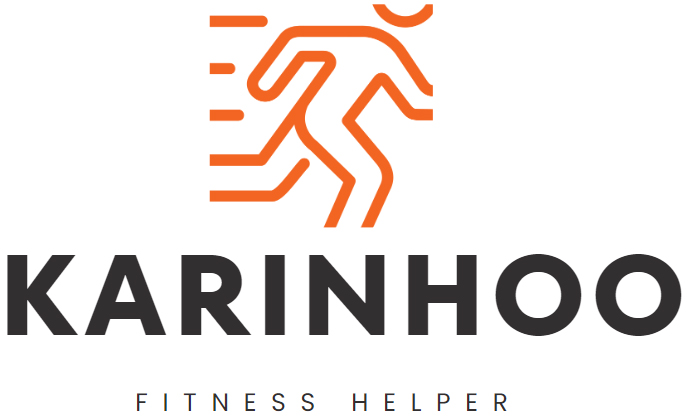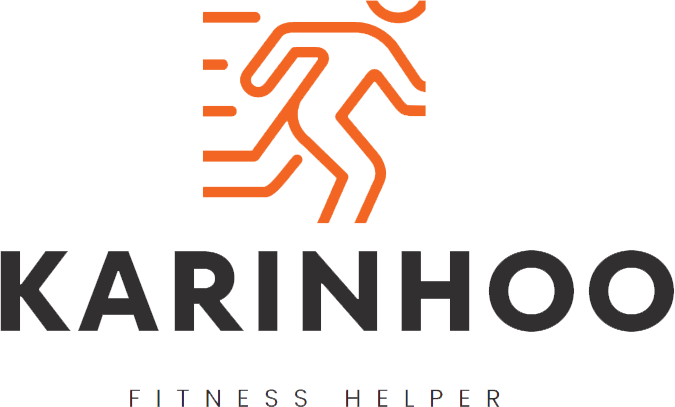Essential Nutrients for Runners
Running is not just about crossing the finish line; it’s a holistic journey that requires proper nourishment to achieve peak performance. As a runner, it is essential to understand the importance of incorporating the right nutrients into your diet to fuel your body and keep it healthy. Here are some key nutrients that runners should focus on to optimize their performance.
Protein
Protein is a vital macronutrient for runners as it helps repair and build muscles, aids in recovery, and supports overall performance. Including lean sources of protein such as chicken, fish, tofu, and beans in your meals can ensure that your body gets an adequate amount of this nutrient. It is recommended to consume about 1.2 to 2 grams of protein per kilogram of body weight per day, depending on individual needs.
Carbohydrates
Carbohydrates are the primary fuel source for runners, supplying the energy needed for long-distance runs. Complex carbohydrates like whole grains, fruits, vegetables, and legumes provide a steady release of energy and should form the base of your diet. Aim to consume around 45-65% of your daily calories from carbohydrates, adjusting the amount based on your training demands.
Healthy Fats
While often misunderstood, healthy fats play a crucial role in a runner’s diet. They provide sustained energy, support hormone production, aid in nutrient absorption, and promote optimal brain function. Include sources of healthy fats such as avocados, nuts, seeds, olive oil, and fatty fish like salmon or mackerel in your meals. However, it’s important to be mindful of portion sizes due to their higher calorie content.
Vitamins and Minerals
Runners have increased nutrient needs due to the physical stress placed on their bodies. Ensuring an adequate intake of vitamins and minerals is essential for optimal performance and overall health. Vitamins like B-complex, C, D, and E, as well as minerals like iron, calcium, and magnesium, play vital roles in energy production, muscle function, bone health, and immune support. Consuming a varied diet rich in fruits, vegetables, and whole grains can help meet these needs.
Hydration
Although not a nutrient, proper hydration is crucial for runners. Dehydration can negatively impact performance and lead to fatigue, muscle cramps, and even heat-related illnesses. Aim to drink enough fluids throughout the day, both during and between runs. Water is usually sufficient for shorter runs, but for long-distance or intense training, consider replenishing electrolytes with sports drinks or consuming water-rich foods like watermelon or cucumbers.
These essential nutrients into your diet will enhance your running performance, aid in recovery, and support overall health. However, it’s important to note that individual needs may vary, and consulting a registered dietitian or sports nutritionist can help create a personalized nutrition plan to optimize your running journey. Remember, a healthier run starts with proper nutrition!
Pre-run Fueling Strategies
When it comes to running, proper nutrition plays a crucial role in maximizing performance. Before heading out for a run, it’s important to fuel your body with the right nutrients to provide the energy needed for a successful workout. pre-run fueling strategies into your routine can help you achieve optimal running performance. Here are some key tips to consider:
1. Timing is everything: It’s essential to time your pre-run meal or snack appropriately to avoid discomfort during exercise. Ideally, aim to consume your pre-run fuel about 1-2 hours before your workout. This allows enough time for digestion and absorption of nutrients.
2. Balance your macronutrients: A well-rounded pre-run meal or snack should include a combination of carbohydrates, protein, and healthy fats. Carbohydrates are the primary source of energy for runners, so include foods like whole grains, fruits, or starchy vegetables. Protein helps repair and build muscle tissue, so adding lean sources like chicken, fish, or plant-based options is beneficial. Healthy fats from sources like avocados, nuts, or seeds provide sustained energy and aid in nutrient absorption.
3. Choose easily digestible options: Opt for foods that are easy on the stomach and won’t cause gastrointestinal distress. Some suitable pre-run snacks may include a banana, a slice of whole grain toast with peanut butter, or a small bowl of oatmeal with berries.
4. Stay hydrated: Proper hydration is essential for any physical activity, including running. Aim to drink water or a sports drink about 30 minutes before your run to ensure you’re adequately hydrated. This will help maintain electrolyte balance and prevent dehydration.
5. Avoid high-fiber and greasy foods: Foods high in fiber or greasy can cause digestive issues during a run. Steer clear of heavy meals, spicy foods, or anything that tends to sit heavy in the stomach.
By following these pre-run fueling strategies, you can give your body the fuel it needs to perform at its best. Experiment with different options and find what works best for you. Remember, everyone is different, so it’s important to listen to your body’s cues and adjust accordingly.
Hydration Tips for Optimal Running Performance
Proper hydration is essential for runners to maintain optimal performance and avoid dehydration. When you run, your body loses fluids through sweat, which can lead to dehydration if not replenished adequately. Here are some hydration tips to help you stay hydrated and perform at your best during your runs.
Create a Hydration Plan
Before heading out for your run, it’s essential to have a hydration plan in place. Determine how long you’ll be running and how much fluid you’ll need to consume to stay hydrated. As a general guideline, aim to drink 5-10 ounces of fluid every 15-20 minutes during your run, depending on your sweat rate and weather conditions.
Drink Water Throughout the Day
Hydration should start before you hit the pavement. Make sure you’re drinking enough water throughout the day to maintain hydration levels. This will help prevent starting your run already dehydrated. Carry a water bottle with you and sip on it regularly, even when you’re not running.
Choose the Right Fluids
Water is the most basic and essential form of hydration for runners. However, for intense or prolonged runs, you may also consider sports drinks that contain electrolytes and carbohydrates. Electrolytes like sodium, potassium, and magnesium help replenish what you lose through sweat, while carbohydrates provide energy. Experiment with different fluids to see what works best for you during your runs.
Monitor Your Urine Color
A simple way to check your hydration status is to monitor your urine color. A pale yellow color indicates proper hydration, while dark yellow or amber can be a sign of dehydration. Keep an eye on your urine color throughout the day and adjust your fluid intake accordingly.
Stay Hydrated Post-Run
Hydration doesn’t stop once you cross the finish line. After your run, continue to drink fluids to replenish what you lost during your workout. Aim to drink at least 16-24 ounces of fluid within two hours of finishing your run. This will help restore hydration and aid in recovery.
Avoid Overhydration
While it’s crucial to stay hydrated, be mindful not to overhydrate. Drinking excessive amounts of fluid can lead to a condition called hyponatremia, where the body’s sodium levels become diluted. This can be as dangerous as dehydration. Listen to your body, drink when you’re thirsty, and trust your hydration plan.
Remember, proper hydration plays a significant role in your running performance. By following these hydration tips, you can ensure that you stay hydrated throughout your runs, leading to a healthier and more enjoyable running experience. Cheers to a well-hydrated and successful run!
Post-run Recovery Nutrition
Recovery is a vital part of any training program, and for runners, proper nutrition plays a crucial role in optimizing this process. After a challenging run, your body needs the right nutrients to repair and replenish glycogen stores, reduce muscle damage, and enhance overall recovery. Here are some essential post-run recovery nutrition tips to help you bounce back stronger:
1. Replenish Fluids and Electrolytes:
Fluid and electrolyte losses occur through sweat during exercise, so it’s important to replenish them after your run. Opt for a combination of water and electrolyte-rich fluids like coconut water or sports drinks to restore hydration levels. This will help regulate bodily functions and prevent dehydration-related issues.
2. Refuel with Carbohydrates:
Your muscles rely on glycogen, which is stored glucose, for energy during intense exercise. Consuming carbohydrates post-run helps replenish these glycogen stores, promoting faster recovery. Choose easily digestible, high-quality carbs like bananas, whole grain bread, or sweet potatoes to kickstart the recovery process.
3. Prioritize Protein:
Protein is essential for muscle repair and growth. Including a source of protein in your post-run meal or snack helps stimulate muscle protein synthesis and aids in recovery. Opt for lean sources such as chicken, fish, tofu, or Greek yogurt to meet your protein needs.
4. Don’t Forget Healthy Fats:
Healthy fats into your post-run recovery nutrition can provide additional satiety and promote overall well-being. Foods rich in omega-3 fatty acids, like salmon or chia seeds, help reduce inflammation and support joint health.
5. Include Antioxidant-Rich Foods:
Intense exercise increases oxidative stress in the body, leading to cell damage. Including foods high in antioxidants, such as berries, dark leafy greens, or nuts, can help neutralize free radicals and promote recovery.
6. Timing Matters:
Try to consume your post-run meal or snack within 30 minutes to an hour after finishing your run. This is when your body is most receptive to nutrient absorption, allowing for optimal recovery and replenishment of energy stores.
7. Stay Hydrated throughout the Day:
Post-run recovery nutrition doesn’t stop with your immediate replenishment. It’s important to maintain hydration levels throughout the day to support ongoing recovery. Aim to drink water regularly and include hydrating foods like fruits and vegetables in your meals.
By following these post-run recovery nutrition tips, you can maximize your body’s ability to bounce back from challenging workouts. Remember, proper nutrition is just as important as training itself when it comes to reaching your running goals. So be sure to fuel your body with the nutrients it needs to go beyond the finish line and run stronger than ever.
Long-term Nutrition Planning for Endurance Runners
Endurance running requires more than just physical training and mental preparation. It also demands careful attention to nutrition and proper fueling strategies to support extended periods of physical exertion. If you are an endurance runner looking to maximize your performance and stay healthy, it is essential to have a long-term nutrition plan in place. By incorporating specific dietary choices and habits into your routine, you can ensure that your body is adequately fueled, promoting optimal performance and recovery.
Setting Your Caloric Needs
To effectively fuel your body for long-distance running, it is crucial to determine your individual caloric needs. This step involves considering factors such as gender, age, weight, training intensity, and duration. Consulting with a sports dietitian can be beneficial in establishing your specific caloric requirements.
Macro and Micronutrients Importance
Macronutrients such as carbohydrates, proteins, and healthy fats play a vital role in an endurance runner’s diet. Carbohydrates serve as the primary fuel source for running, providing energy for prolonged exercise. Including complex carbohydrates like whole grains, fruits, and vegetables in your meals ensures a steady release of energy during your runs.
Proteins are essential for muscle repair and recovery. They also aid in optimizing immune function. Lean sources of protein, such as lean meats, poultry, fish, legumes, and low-fat dairy products should be incorporated into your diet.
Healthy fats, such as those found in avocados, nuts, seeds, and olive oil, are instrumental in maintaining long-lasting energy levels and supporting overall health.
Micronutrients, including vitamins and minerals, are equally vital for endurance runners. These nutrients aid in energy production, muscle function, and immune system support. Consuming a wide variety of fruits, vegetables, whole grains, and lean proteins ensures an adequate intake of these essential micronutrients.
Timing and Hydration
In addition to a well-rounded diet, timing your meals and hydration is critical for optimal performance. Consuming a balanced meal or snack that includes carbohydrates, proteins, and fats 2-3 hours before a long run provides your body with the necessary fuel for sustained energy levels throughout the run.
Hydration is also crucial during endurance runs. Maintaining proper fluid balance helps prevent dehydration and electrolyte imbalances. Hydrate well in the hours leading up to your run and consider carrying fluids or planning hydration stops during prolonged outings.
Monitoring and Adjusting
A long-term nutrition plan for endurance runners should be a dynamic process. Monitoring your performance, energy levels, and overall well-being allows you to make necessary adjustments to your nutrition plan. Keep track of what works well for you and what doesn’t. Experiment with different foods, meals, and timing to find the optimal nutrition strategy that supports your training and performance goals.
Long-term nutrition planning is crucial for endurance runners aiming to go beyond the finish line. By setting your caloric needs, ensuring an adequate intake of macronutrients and micronutrients, timing your meals and hydration, and monitoring and adjusting your nutrition plan, you can optimize your performance, promote faster recovery, and maintain overall health on your running journey. Take the time to prioritize your nutrition, and you’ll reap the benefits of a healthier, stronger run.
Conclusion
In the world of running, surpassing the finish line is not the final goal; it is a milestone in an ongoing journey towards becoming a better athlete. To achieve this, integrating proper nutrition is essential for runners at every level. By understanding the role of essential nutrients, implementing pre-run fueling strategies, practicing optimal hydration techniques, pursuing post-run recovery nutrition, and adhering to long-term nutrition planning, runners can surpass their potential and strive towards a healthier and more fulfilling running experience.
One of the key factors in optimizing running performance is ensuring an adequate intake of essential nutrients. Runners should focus on consuming carbohydrates, protein, and healthy fats to fuel their bodies. Carbohydrates provide the necessary energy for endurance runs, while protein aids in muscle repair and recovery. Healthy fats, such as those found in avocados and nuts, act as a sustained source of energy. By maintaining a balanced diet rich in these nutrients, runners can improve their stamina and overall performance.
Before embarking on a run, proper pre-run fueling strategies should be implemented to ensure optimal performance. Consuming easily digestible carbohydrates, such as a banana or a granola bar, approximately one to two hours before a run can supply the necessary energy and prevent early fatigue. It is crucial to listen to one’s body and experiment with different pre-run meals to find what works best for individual needs and preferences.
Hydration is a vital aspect of running performance. Dehydration can lead to decreased endurance, fatigue, and muscle cramps. To stay properly hydrated, runners should drink water throughout the day and monitor their urine color. During runs lasting longer than an hour, electrolyte-rich sports drinks or gels can replenish the body’s sodium and potassium levels. Additionally, incorporating fruits and vegetables with high water content, like watermelon and cucumbers, into the diet aids in maintaining hydration levels.
Post-run recovery nutrition is crucial to replenish depleted glycogen stores and repair muscle tissue. Consuming a combination of carbohydrates and protein within 30 minutes of completing a run is vital for optimal recovery. Examples of post-run snacks include a peanut butter and banana sandwich, a protein shake, or Greek yogurt with berries. This window of opportunity allows the body to efficiently utilize nutrients and speed up the recovery process.
Looking beyond individual runs, endurance runners should focus on long-term nutrition planning. This involves following a balanced diet, consuming adequate calories to meet energy demands, and periodically assessing nutrient intake. Working with a registered dietitian or sports nutritionist can provide personalized guidance based on specific goals and training plans. Monitoring weight, body composition, and performance can also help fine-tune nutrition strategies.
Beyond the finish line, integrating nutrition into running routines is an essential aspect of an athlete’s journey towards better performance and overall health. By understanding the importance of essential nutrients, implementing pre-run fueling strategies, practicing optimal hydration techniques, pursuing post-run recovery nutrition, and adhering to long-term nutrition planning, runners can exceed their limits and unlock their true potential. So lace up your shoes, fuel your body, and embrace the power of nutrition to conquer the roads ahead.






